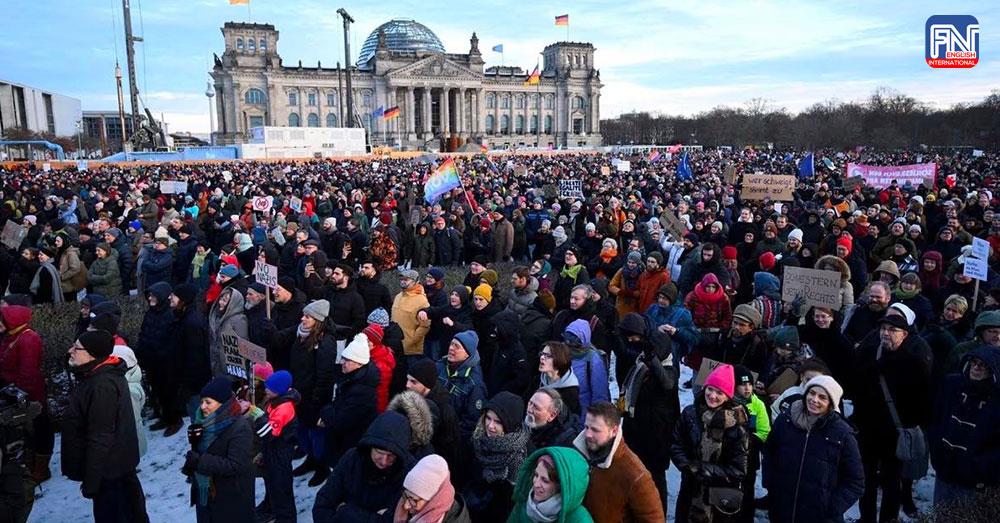FRANKFURT, Jan 21 (Reuters) - Hundreds of thousands of people have taken to the streets across towns and cities in Germany this weekend as the country enters a second week of nationwide protests against the right-wing Alternative for Germany (AfD) party.
Demonstrations have gained momentum after reports emerged from investigative news website Correctiv of a meeting of right-wing extremists in Potsdam at which migration policies including mass deportations of people of foreign origin were discussed.
The AfD, which is polling second in nationwide surveys, has denied the reported migration plans are party policy.
On Sunday, rallies were held in Berlin, Munich and Cologne, as well as in more traditional AfD voting strongholds in eastern Germany such as Leipzig and Dresden, with turnout in many places far higher than expected.
Organisers in Munich ended the demonstration early due to overcrowding with around 100,000 participants, according to police.
Protest organisers said 200,000 people attended. At the start of the event in Berlin, there were 30,000 people and the number was growing, police said.
Several tens of thousands also took to the streets in Cologne and Bremen on Sunday. Event organisers estimated around 300,000 people demonstrated nationwide on Saturday.
"It's a signal to the world that we won't let this happen without commenting on it," said protestor Steffi Kirschenmann, a social counsellor based in Frankfurt, one of tens of thousands that gathered peacefully in sub-zero temperatures in Frankfurt's centre on Saturday.
Lord Mayor of Frankfurt, Mike Josef, addressed crowds on Roemer Square, which he reminded protesters was the same spot where the Nazi regime had burnt books.
The AfD declined to comment on the demonstrations against it.
Business leaders have voiced their concerns, with Siemens Energy (ENR1n.DE), opens new tab supervisory board chairman Joe Kaeser telling Reuters the reports trigger "bitter memories".
President Frank-Walter Steinmeier has seen the rallies across Germany against right-wing extremism as a sign of strength. In a video message distributed on Sunday, Steinmeier said: "You are standing up against misanthropy and right-wing extremism, these people encourage us all."
He called for an alliance of all democrats, saying "Let's show that we are stronger together."
German Vice-Chancellor Robert Habeck told a local newspaper he saw the demonstrations as an encouraging sign for democracy.
"It is impressive to see that many people are now taking to the streets and flying the flag for our democracy", the Green party politician told the Augsburger Allgemeine.
The Central Council of Jews in Germany also welcomed the demonstrations. For Jews, this is an image "that can restore confidence in the democratic conditions" of the country, Central Council President Josef Schuster told Welt-TV.
Germany's Boersen-Zeitung on Saturday published a series of statements from companies listed in Germany's DAX stock market index in which the companies spoke out against xenophobia, anti-semitism and political extremism on the right-wing fringe.

Photo from Reuters